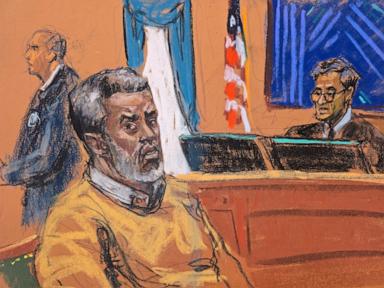UPDATE: Sean “Diddy” Combs’ legal team is preparing an immediate appeal after the rapper was sentenced to 50 months in prison, a term they argue is excessively harsh and unjust. The defense claims Judge Arun Subramanian acted as a “13th juror,” imposing punishment for offenses for which Combs was acquitted, including serious charges of sex trafficking.
In exclusive statements to ABC News on Friday, Combs’ attorneys expressed their outrage, indicating this decision could severely affect the rap mogul’s future. “The jury made it very clear in their verdict that they acquitted him of the sex trafficking and the RICO counts,” said lead attorney Teny Geragos. He emphasized, “Not guilty means not guilty.”
Combs has already served 12 months in prison and faces a fine of $500,000 in addition to his sentence. The ruling has sparked widespread debate over judicial discretion and the implications of this high-profile case.
Geragos characterized Combs as a “changed man,” rejecting claims from prosecutors that he is trying to evade accountability. “I can say, from the bottom of my heart, that he is a changed man,” he stated, adding that the lengthy sentence contradicts the goal of rehabilitation.
Attorney Alexandra Shapiro, who will spearhead the appeal process, noted that the judge’s sentence was inconsistent with the jury’s findings. “The sentence was driven by conduct the jury rejected,” she asserted, underscoring that the acquittal on sex trafficking meant the jury found no coercion in Combs’ actions.
“The court is not assured that if released, these crimes would not be committed again,” Judge Subramanian stated when announcing the sentence, highlighting the repeated nature of Combs’ behaviors and the violence towards former partners.
Despite the damning evidence presented during the trial, including a video showing Combs assaulting his former partner, Shapiro argued that incarceration should not overshadow the potential for rehabilitation. “What is the point of more incarceration for a person like Mr. Combs?” she questioned, expressing a desire for her client to contribute positively to society.
Combs’ team believes that the extensive media coverage and the repercussions of his conviction, which include damage to his reputation and ongoing civil lawsuits, serve as sufficient punishment. “Mr. Combs’ life has been destroyed by all of this,” Shapiro stated, insisting that further incarceration is unnecessary to address the issue of domestic violence.
As the defense gears up for the appeal, the case continues to draw significant public interest and raises questions about justice, accountability, and the potential for reform in the legal system. Stay tuned for further updates as this developing story unfolds.
